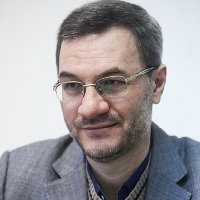Investigating the relationship between traditional culture and modernity in the perspective of Ali Shariati
This research was conducted to investigate the relationship between tradition and modernity in Ali Shariati's thought. Ali Shariati was one of the thinkers who was aware of both the system of tradition and the potential of modernity. He lived in a time when the Iranian society was involved in many issues and problems. Therefore, Shariati tried to pathologize it on the one hand by understanding tradition, and on the other hand, by understanding modernity, extract its conceptual and theoretical capacities. It seems that Shariati was not looking for polarization between tradition and modernity, but he was trying to understand their capacities before anything else. Ali Shariati, as a member of the Islamic thought stream, sought to reconstruct religion in a modern state. Her call to recognize the identity, return to oneself and revolutionary self-improvement, was an approach resulting from the conscious recognition that she had towards the internal problems of the Iranian society and especially its young generation. At the height of the tyranny of the Shah's regime and the dominance of Marxism theory, Shariati believed that the school of Islam is the only liberating element for Muslims and that Islam and the Qur'an should be cleansed of historical superstitions and distortions by reinterpreting them and relying on the religious conscience of the people in order to face the dictatorship. His narration of the modern and traditional pillars of civil society and his cultural critique of these pillars are placed in the realm of religious intellectuals. Shariati's view does not require the negation of tradition and religion and the replacement of modern ideas or vice versa; Rather, he was a critic of both, through the use of symbolic sources of tradition and liberating elements of modernity.
The methodology of this research was based on an interpretive approach. This interpretive approach has tried to go beyond the dualization of tradition and modernity in terms of the theoretical framework and re-examine this relationship according to the considerations of sociologists of Reflexive modernization.
Shariati gave answers to the questions of his time. These answers were the solutions for the revival of Islam in the modern world, criticizing the West and making critical use of it, as well as creating a fundamental transformation in the history of Islamic nations to overcome backwardness and colonialism. According to Shariati, one of the factors of alienation in our era is cultural colonialism. An opinion that is reminiscent of the culture industry of the Frankfurt School. Colonialism appears in political, economic and cultural forms. Shariati was well aware that the contemporary history was not without movements and revolutions, and merely inciting the movement is not enough, so there should be a pathology of the past movements as well. Therefore, with his summary of the contemporary history of Iran and the history of the world, he came to the conclusion that one of the reasons for the failure of movements and revolutions in Iran, from the constitutional revolution onwards, is the lack of a liberating ideology that fits the history, culture and religion of this society. So, he tried to recreate such an ideology. This liberating ideology, like the critical theory of the Frankfurt School, should have criticized the totality of the existing social structure.
The final
Shariati, like most intellectuals after the constitutional revolution, stood in the gap between tradition and modernity. He knew very well that according to the used historical interpretations, the reserves of tradition, although they have good capacities, but like any everyday phenomenon, they have lost their revolutionary power, so they need to be defamiliarized so that they can be mobilized for the contemporary situation. On the other hand, Shariati was not a passive modern thinker who unquestioningly accepted the totality of imported and borrowed modernity. Rather, he had a critical and re-thinking reflection on modernity and accepted a re-thought form of it. While looking deeply into his historical features, Shariati is aware of both the weight of tradition and the effects of modernity. Therefore, he never wants tradition to prevail over modernity, or modernity to throw tradition aside. He tries to open a third way by criticizing both modernity and tradition. His method, with a rethinking approach, was refining and extracting cultural resources.
Islam , Tradition , Culture , Shariat , Reflexive Modernity
-
A reflection on the relationship between tradition and modernism in Shariati's thought
Hajieh Sabbagh Koljahi, *, Mohammadtawheed Pham
Qarbshenasi-ye Bonyadi,



